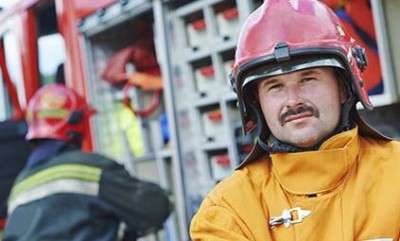Study finds melanoma and prostate cancer a risk for firefighters

Firefighters are at greater risk of developing some cancers, compared to the Australian public, a study has found.
The study, conducted by Monash University researchers, and commissioned by the Australasian Fire and Emergency Service Authorities Council (AFAC), the national Council and peak body for fire and emergency service agencies, is the first large-scale study of firefighters' cancer and causes of death in Australian paid and volunteer firefighters.
"From the available data, it would appear that Australian firefighters do not have the same elevated incidence of all the identified cancers that have been found in previous overseas studies of cancer incidence in firefighters," AFAC CEO Stuart Ellis said.
"This is the first study of this size of Australian firefighters which also includes information on attendance at fires, so the industry is currently working through the findings to identify how the health of firefighters can be further protected," he said.
For the past three years, Monash University has been working on the study with input from an Advisory Committee comprising members from AFAC, trade unions and firefighter volunteer associations to conduct research on 232,871 current and previously serving firefighters. The study compared them to the Australian population in relation to both causes of death and incidence of cancer.
Lead researcher, Associate Professor Deborah Glass, from Monash University's Department of Epidemiology and Preventive Medicine, said the study found that firefighters faced a higher risk of some cancers.
"In particular we found that paid firefighters were at greater risk of melanoma and prostate cancer, especially after multiple exposures or prolonged service," Associate Professor Glass said.
"We also found that volunteers, on the whole, do not appear to have significantly elevated risks of cancer as a result of their firefighting role, however further analysis may need to be completed for those volunteers who have attended a very high number of fires."
There was some evidence that male volunteer firefighters who had served for more than 20 years had an elevated risk of prostate cancer.
"We also considered mortality rates and found that male firefighters, whether they be full-time, part-time or volunteer are healthier than the general population, as their overall mortality rate was significantly lower," she said.
Associate Professor Glass said the results had some consistency with previous research, which indicated that working men have lower death rates than the general population. Not much can be determined on female firefighters due to the low numbers studied.
Mr Ellis added: "Australian fire agencies, unions and volunteers associations have worked hard to reduce the risk of exposure and other health risks to firefighters, and this study may be reflecting those efforts."
"The two most elevated cancers, prostate and melanoma, do have early detection screening tests available so the industry will investigate opportunities to incorporate screening for these cancers into health monitoring programs. Melanoma can be significantly reduced through appropriate sun safety practices," he said.
"The industry is committed to ensuring the health and safety of firefighters and will review the report in detail to gain a greater understanding of the risks in order to focus on mitigation strategies to support the health of firefighters."
















